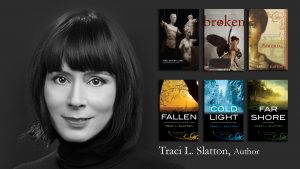Yoga & Love
Yoga & Love
I came to yoga, the ancient physical system for opening the heart, by way of heart break.
It was a bleak February years ago during the bleakest part of my divorce. The end of a twenty year relationship, of which twelve were spent in marriage, doesn’t qualify as easy. I found it fraught, a spiky tangle of anger, relief, grief, and confusion. I couldn’t integrate the double vision I experienced when I interacted with my former husband. There were now two of him: the sweet man I’d married, whom I’d always love, even if we couldn’t make a happy life together, and the difficult stranger who did not mean me well, when things came up to negotiate. It was painful. I was a mess.
I wasn’t alone during this time. I had a boyfriend. He looked like the reason I had left my former husband. But the higher calculus of the heart metabolizes change with infinitely more complexity than that, and no one ever leaves one mate for another. You leave a union for yourself, for the person you hope to be. “She left one man for another” was simply the judgment people made, uninformed people who hadn’t lived the emotional poverty of my marriage.
This boyfriend had a lot of patience for my desolation, but at a certain point, the change in my feelings over the elapsed time wasn’t an impressive differential. He’s a practical man. “Time for you to fix yourself,” he said. “I’m calling the Ashtanga place downtown to send you a teacher.”
So I began a practice of yoga. My teacher Laura arrived with her mat and didn’t want to hear any sad tales about my divorce. She wanted me to practice mountain pose and standing forward bend. She kept adjusting my sacrum. She kept telling me to drop my shoulders down from my neck, where they were squeezing my cervical spine in a relentless grip that would do any pit-bull proud. In retrospect, it’s amazing that any blood was getting up to my brain at all.
The first few weeks were a haze of twisty pain. I didn’t notice it at first, but I wasn’t as obsessed with the cycle of stories that had been playing in an endless loop in my head. It wasn’t until after a month of lessons that something clicked. I was watching Laura demonstrate trikonasana, triangle pose. Gracefully, consciously, she let her straight back leg pull her front body forward until she was clasping her big toe. She rotated her torso while extending evenly through it. She reached up in harmony with her breath while looking up, and it was such an expression of balance, strength, openness, and ease that the light-bulb flicked on over my head. I got it: there was a better way. A better way to move. A better way to feel. A better way to live.
I started to pay close attention to yoga. I asked questions: “How do I get an angle closer to 90 degrees in my leg in warrior two? “How do I better feel the relationship between my breath and my pelvis?” “What does my focus point mean to my mind?” Most of the time, the answer was, “Keep practicing.” Laura told me that all poses are led by the heart, and I took that seriously. Something inside me began to heal. The scars would remain but I was moving forward with my life. After a while Laura told me it was time for me to move on from her as well. She said I needed to attend a variety of classes and to pursue the practice of yoga in the way that I was led to, from within my own heart. It was a gracious example of setting someone free.
So I continue to practice and pursue yoga. It spills over into the time off my mat. When I stand at a street corner and wait for the light to change, I tune into my body. I drop my shoulders and check my pelvis and let my body flow softly into mountain pose. The subtle changes in position open up my breathing, and I remember that all movement is led by the heart.



